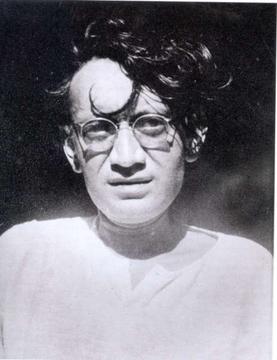
Hazrat Shah Waliullah Dehlawi was foremost scholar of Islam born in India. He was foremost mufassir, muhaddtih, historiographer, theologian, philosopher, academic, linguist and sufi. It is said the Subcontinent hasn’t produced an Islamic scholar of his caliber.
#Thread
#Thread

His full name was Quṭb-ud-Dīn Aḥmad Waliullah Ibn ʿAbd-ur-Raḥīm and was on 21 February 1703 to Shah Abdur Rahim, who was the founder of the Madrasah-i Rahimiyah. He was on the committee appointed by Aurangzeb for compilation of the code of law, Fatawa-e-Alamgiri. 

Major reformation movements in the Subcontinent including Tablighi Jamaat, Barelvis, NeoMotazillis, Jamaat-e- Islami and other Islamic movements were inspired by his work on pan Islamism. Leaders of Tehrik e Jihad Shah Ismail n Syed Ahmad Barelvi were also inspired by his works.
Allama Shibli Naumani, one of the great scholars says "The contribution of Shah Wali Allah overshadows men like Ghazzali and Razi. While the exposition of earlier mutakallim exclusively focuses on the questions of belief, Shah went beyond this narrow scope of theology" (Al Kalam)
He is called opponent of the Shias. However this is far from truth. He extensively worked on reconciliation between Shias and Sunnis when the two confronted each other. When physical violence between the 2 was at its peak and mystic, poet n scholar like Mirza Mazhar Janjanan was
...murdered he actively worked for reconciliation even though it was taken as weakness. He was labeled as Shia. His book Izalat Al Khilafa is witness to his activism. In this book he wrote about the four caliphs of Islam, misunderstandings of shias and fanaticism of sunnis also.
He believed that Muslim polity could be restored to its former splendour by a policy of religious reform that would harmonize the religious ideals of Islam with the changing social and economic conditions of India. He repeatedly wrote to Ahmad Shah Abdali to come to India.
he said religious ideas were universal n eternal, but their application could meet different circumstances. Main tool of his policy was the doctrine of taṭbīq, whereby the principles of Islam were reconstructed and reapplied in accordance with the Qurʾān and the Hadith
He thereby allowed the practice of ijtihād which hitherto had been curtailed. As a corollary, he reinterpreted the concept of taqdīr (determinism) and condemned its popularization, qismat. He held that man could achieve his full potential by his own exertion in a universe that
was determined by God. Theologically, he opposed the veneration of saints or anything that compromised strict monotheism. He was jurisprudentially eclectic, holding that a Muslim could follow any of the four schools of Islamic law on any point of dogma or ritual.
His most important works include
Hujjat Allah al-baligha
Al-Khayr al-kathir
Sata'at
Lamaat
Fuyud al-haramayn
Al-Tafhimat
Al-Budur al-bazighah
Ta’wil al-ahadith fi rumuz qisas al-anbiya
Hujjat Allah al-baligha
Al-Khayr al-kathir
Sata'at
Lamaat
Fuyud al-haramayn
Al-Tafhimat
Al-Budur al-bazighah
Ta’wil al-ahadith fi rumuz qisas al-anbiya
Alhamdulillah I have most of his work and have read most of that. I have also got his 'Tafhimat e Ilahiya translated in Urdu(Arabic part only). Waris Mazhari translated it for us. We are waiting for funds to publish it in the form of a book. 



• • •
Missing some Tweet in this thread? You can try to
force a refresh












